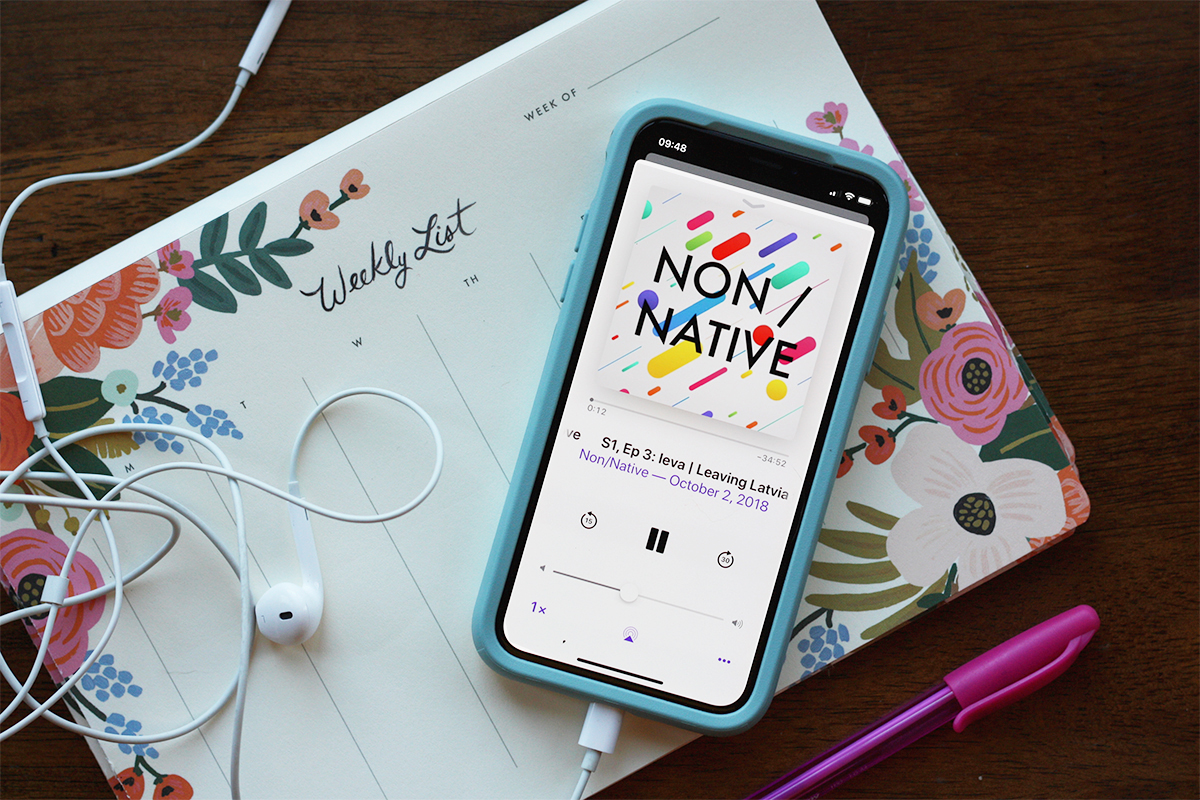
In September this year I launched Non/Native – a podcast sharing interviews with female immigrants and expats. Season one was short and sweet (five episodes with five amazing women, which you can listen to here), but launching a podcast took months of planning and hours spent wrangling audio editing software to produce.
I’d had the idea for Non/Native for a while, along with a million and one reasons why I shouldn’t pursue it; what if no one listens, my voice sounds weird, podcasting is an oversaturated market, do I have the right to talk about immigrant experiences, I don’t even know how to edit audio…
All were valid concerns, but I’ve spent the last year trying to face the things that scare me head on. Combine that with my passion for the subject matter and somehow, I managed to make a plan, learn what I needed to learn, ask for help when I needed it, and put out the first episode. Season two will be back in spring 2019, but in the meantime I wanted to share a few learnings from my experience of creating a podcast.
It turns out I hate the sound of my voice
There’s no way to sugarcoat this one; if you don’t like the sound of your voice, you need to quickly get comfortable with the fact you’ll be listening to it for hours. I don’t vlog, talk on Instagram Stories or the like. So – apart from a couple of GCSE French oral recordings from way back when – I didn’t really know what I sounded like until I began making Non/Native. If you’re starting out in podcasting you’ll probably be editing your audio yourself, which means hours of material to feed your insecurities and cringing at every little “umm,” “ok” or “sure.” I still don’t like hearing my voice, but I’m counting on this getting better with each recording.
Podcasting classes are great
I took a couple of podcasting workshops and classes before Non/Native launched and both were immensely helpful. One was a one-off evening workshop in San Francisco (through General Assembly) and the other was a four-week online course with the Knight Center for Journalism. The former cost $69 and the latter was completely free. I learnt a lot from both, particularly regarding recording setups, hosting and distribution options. If you’re thinking about podcasting, then I recommend looking into a class to help get you started and connect with likeminded folks.
Nerves are normal
Maybe it comes back to not being used to hearing myself speak, but uploading each episode felt very different to hitting “publish” on a blog post. I was so nervous but I think that’s perfectly normal. You’re putting creative work out into the world, you want the person you interviewed to like it (or at the very least, not hate it), not to mention all the people you’ve spammed with tweets, WhatsApp messages and Instagram posts.
Podcasting doesn’t have to be expensive
I think one of the best things to come out of the podcasting workshop I attended was seeing a photo the instructor showed of Marc Maron’s recording setup. You know, the Marc Maron who has interviewed President Obama, Joan Jett and Jennifer Lawrence. NBD. A podcast as big as WTF started life in a garage, with a hodgepodge of equipment and furniture – proof that you don’t need a fancy studio to record in. For season one I used an app on my phone, a USB microphone, and a pop shield made from an old pair of tights and a wire coat hanger. I originally went with free audio editing software (Audacity) before switching to Reaper and using their 60-day trial window to to edit all my episodes in. For hosting and distribution, I’m currently using Anchor, which is free, and very straightforward to use. Do your research, work out where you can spend and save, and podcasting doesn’t have to cost much at all.
Producing something from start to finish is so rewarding
As nervous as I was, launching Non/Native was positively exhilarating. I’m lucky enough to have a husband who works in the audio industry, (thanks, M, for repeatedly answering every editing question I had at least three times) but I sourced guests, drafted questions, scripted intros and edited each episode myself. To see that all come together when the first episode went live was hugely rewarding. As much as I want to share the stories of incredible women, I also wanted to challenge myself and learn a new skill. The payoff to any challenge you set yourself is a feeling that can’t be beat.